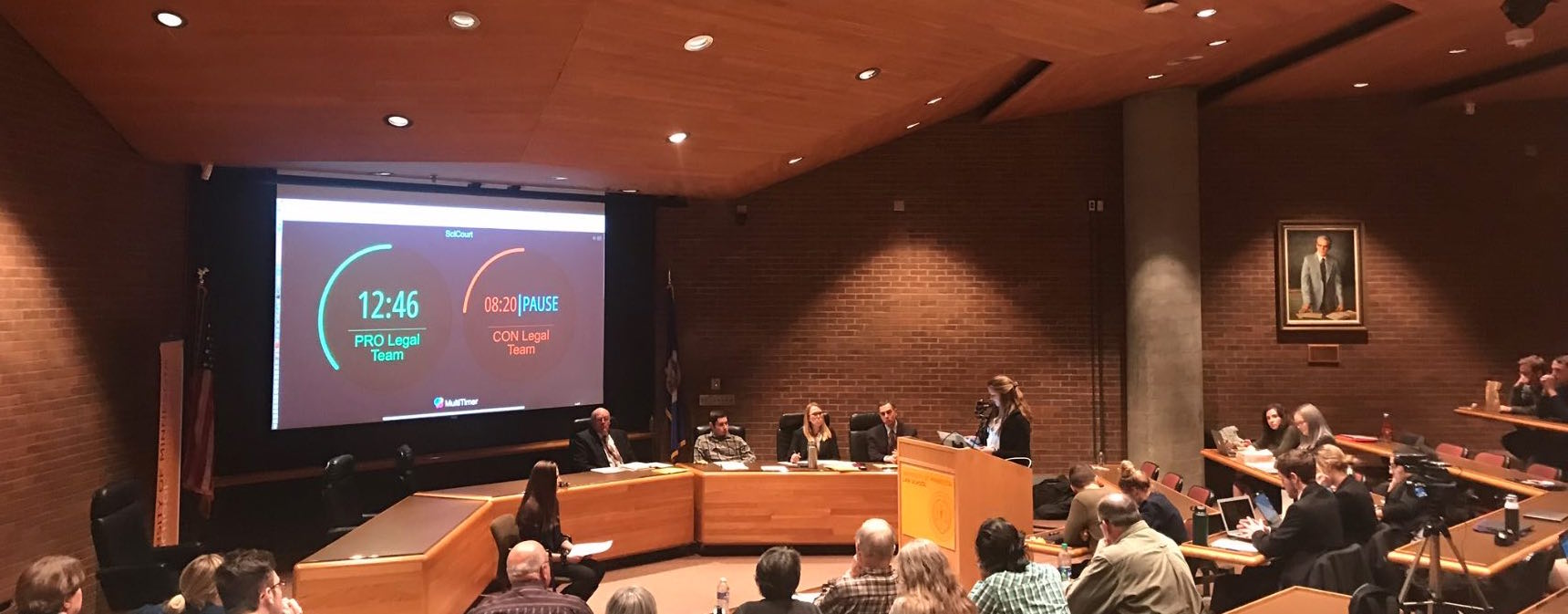
Welcome to Science Court!
Science Court is a project designed to combat polarization in American society and strengthen democracy. It is run as an interdisciplinary course in the University of Minnesota Honors Program involving students from across the university. The students select a controversial issue and spend an entire semester studying it in depth to determine the facts (based on sound scientific research) and then argue it in a mock trial in front of a jury of citizens with a mix of views and backgrounds. The public is engaged through compelling audio, video and online content generated by the students about the preparations, trial and verdict. The trial is free and open to the public.



The 2022 Science Court case is
Grading practices at the University of Minnesota can lead to bias, stress, and disincentivize learning, new innovative student assessment methods should be adopted
This year's Science Court is in partnership with the University of Minnesota (UMN) Student Senate. This topic is inspired by a Student Senate resolution, approved on December 3, 2020, requesting an extension of the UMN policy allowing students to opt for S/N grading (Satisfactory/Not satisfactory) in any course due to the COVID-19 pandemic. The Science Court case generalizes this to a full reevaluation of how students are assessed at UMN. This is timely considering increasing concerns regarding student mental health, the increased emphasis on student diversity and equity, changes in how students learn due to the technological environment, the increase in scholastic dishonesty facilitated by the internet and social media, and the rise of remote learning.
Science Court will consider student assessment holistically exploring what is known from scientific research in domains of knowledge informing this topic and propose two main strategies, Refine versus Reform, for the Student Senate to consider.
- The "Reform" (pro) approach proposes to replace the current UMN system with alternative methods for grading and student assessment proposed in the literature and tested at other institutions.
- The “Refine” (con) approach will argue to largely retain the current UMN grading system with modifications aimed at addressing its limitations based on research findings.
Stay tuned or follow us on twitter or join the Science Court mailing list to be kept informed.
LATEST BLOG POSTS
What's the Deal with Nuclear Power?
You may be asking yourself... why nuclear power? What is so important about it? Well, we can't give you all the research just yet; that would be a spolier. Our science team is working hard to research nuclear power and answer all of those burning questions that you might have, but for now we thought it was time we gave you an overview on the state of nuclear power. Our legal and programming teams worked together to create a "State of the Issue" explainer video to give our audience an overview of some of the details and facts about nuclear power. So, what's the deal with nucelar power? https://www.youtube.com/watch?v=MfPzhSxZpys&feature=youtu.be
Drugs, Nukes and Cars, oh my!
Welcome back for year 2 of the science-court podcast! Find out what we’ve been up to in the first few weeks of class, and what we’ll be learning about and sharing with you for the rest of the semester. (Hint hint: this year’s going to be powerful!)
What is Science Court?
Still wondering what Science Court is all about and why you should be interested in it? Take a look at this video made by our amazing Programming Team viedographer, Grace O'Neil, on what Science Court is all about and how we got to where we are now in the process.